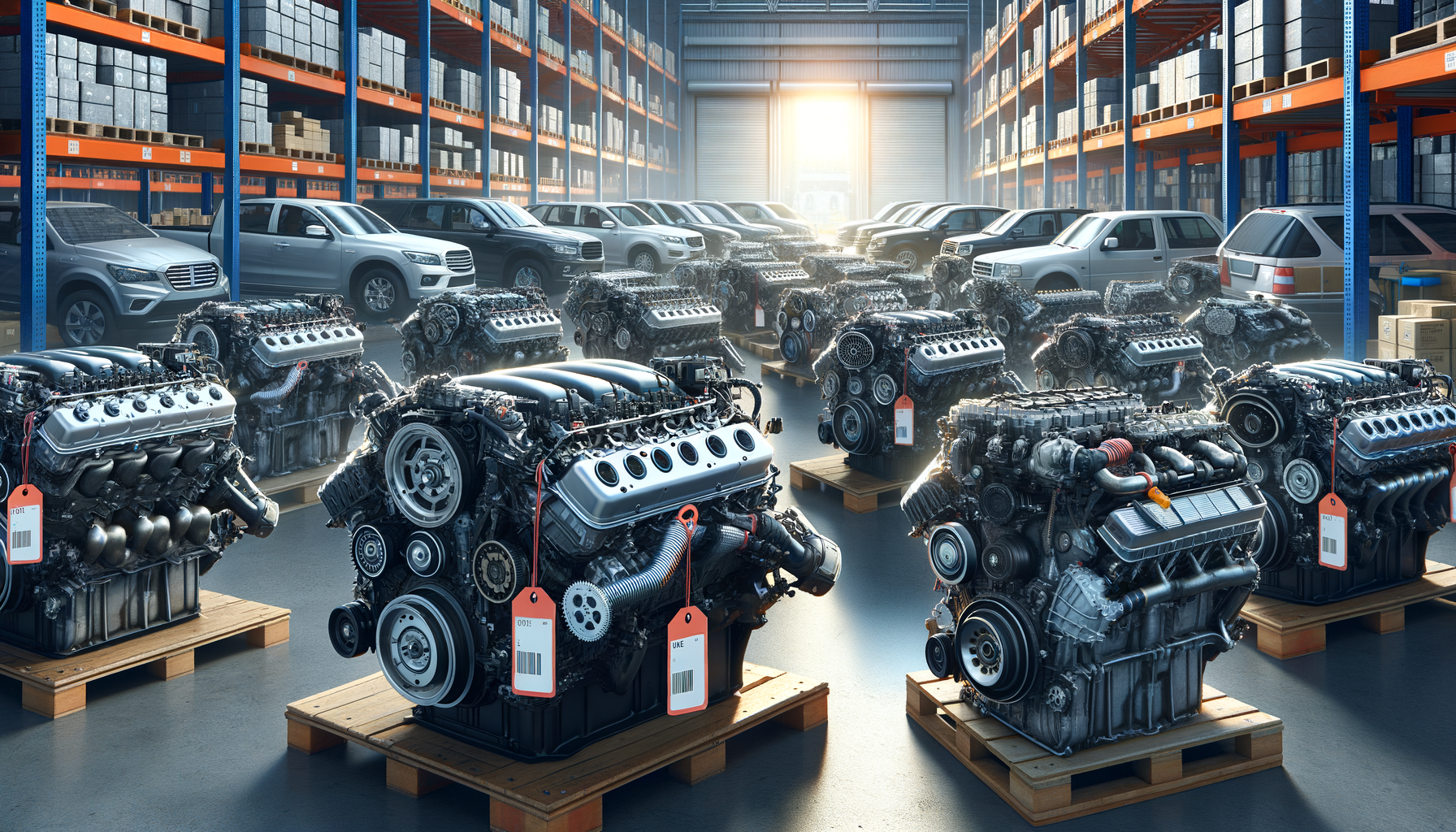Understanding the Market for Used Engines
In the world of automotive repair and maintenance, the market for used engines is a vital segment that offers significant savings and sustainability benefits. Used engines, often sourced from vehicles that have been decommissioned due to reasons other than engine failure, provide an economical alternative to brand-new engines. Understanding this market involves recognizing the diversity of options available, from local auto shops to online marketplaces.
One of the key attractions of used engines is the cost-saving potential. New engines can be prohibitively expensive, especially for older vehicle models. Used engines, on the other hand, can be purchased at a fraction of the cost, making them an attractive option for budget-conscious individuals. Furthermore, the availability of engines from various makes and models ensures that consumers have a wide range of choices, catering to different needs and preferences.
However, navigating the used engine market requires a discerning eye. It is essential to ensure the engine’s compatibility with your vehicle and to verify its condition and history. This is where reputable sellers and detailed service records play a crucial role. By choosing a seller with a strong reputation and verifiable engine history, buyers can mitigate risks and make informed decisions.
Benefits of Buying a Tested Used Engine
Purchasing a tested used engine offers numerous advantages that extend beyond mere cost savings. One of the primary benefits is reliability. Engines that have been thoroughly tested are less likely to have hidden defects, providing peace of mind to buyers. Testing typically involves a series of checks, including compression tests, leak tests, and performance evaluations, ensuring the engine meets specific standards.
Another advantage is the environmental impact. Opting for a used engine reduces the demand for new manufacturing, which in turn decreases the carbon footprint associated with producing new engines. This makes buying a used engine an environmentally responsible choice, aligning with the growing trend of sustainable living.
Moreover, tested used engines often come with warranties, offering additional protection against unforeseen issues. While the terms of these warranties can vary, they generally cover defects and performance failures within a certain period. This warranty coverage is a testament to the seller’s confidence in the engine’s condition and provides an added layer of security for the buyer.
Finding a Reliable Used Engine Seller Nearby
When searching for a reliable used engine seller, proximity is often a significant factor. Local sellers offer the convenience of easy access and the ability to inspect the engine in person before making a purchase. This face-to-face interaction can build trust and allow for a more thorough assessment of the engine’s condition.
To find reputable sellers nearby, start by seeking recommendations from trusted sources such as mechanics, car enthusiasts, or local automotive forums. These individuals often have firsthand experience and can provide valuable insights into the reliability and reputation of different sellers. Additionally, online reviews and ratings can offer a broader perspective on customer satisfaction and service quality.
Once potential sellers are identified, it’s crucial to ask the right questions. Inquire about the engine’s history, including mileage, previous usage, and any repairs it may have undergone. A transparent seller should be willing to provide documentation and answer any questions you may have. This level of transparency is a good indicator of a seller’s credibility and commitment to customer satisfaction.
Key Considerations When Purchasing a Used Engine
Purchasing a used engine involves several key considerations to ensure you make a well-informed decision. Compatibility is paramount; the engine must be a suitable match for your vehicle’s make, model, and year. It’s advisable to consult your vehicle’s manual or a professional mechanic to confirm compatibility before proceeding with a purchase.
Condition is another critical factor. Look for signs of wear and tear, such as oil leaks, unusual noises, or excessive smoke. These could indicate underlying issues that may require costly repairs. A thorough inspection, ideally conducted by a qualified mechanic, can help identify potential problems and assess the engine’s overall health.
Additionally, consider the warranty and return policy offered by the seller. A comprehensive warranty provides reassurance that the seller stands by the quality of their product. Similarly, a flexible return policy can offer peace of mind, allowing you to return the engine if it does not meet your expectations.
Conclusion: Making an Informed Decision
In conclusion, purchasing a used engine can be a financially savvy and environmentally friendly choice, provided you approach the process with diligence and care. By understanding the market dynamics, recognizing the benefits of tested engines, and identifying reliable sellers, you can make an informed decision that aligns with both your budget and vehicle requirements.
Remember to prioritize compatibility, thoroughly inspect the engine, and ensure the seller offers a satisfactory warranty and return policy. These steps will help you navigate the used engine market confidently, ensuring you find an engine that performs exceptionally well and meets your needs.
Whether you are looking to replace a failing engine or seeking a cost-effective upgrade, the used engine market offers a wealth of opportunities. With the right approach, you can enjoy the benefits of a reliable engine without the hefty price tag of a new one.




Leave a Reply